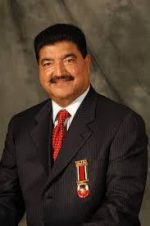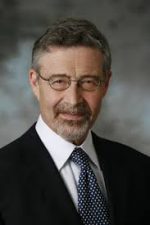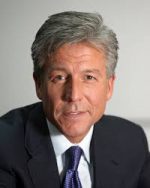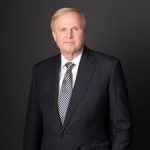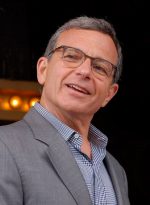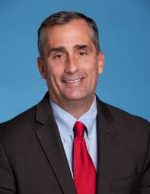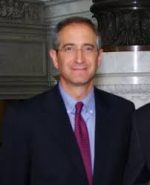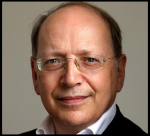Bavaguthu Raghuram Shetty (known as Dr. B. R. Shetty) is the Executive Vice-Chairman & Chief Executive Officer of Abu Dhabi based NMC Healthcare and UAE Exchange. The company when established in 1975 was initially interested in hospitals and hospitality, but since then has diversified into sectors including pharmaceuticals, global financial services, retail, advertising and information technology.
Career:
Dr. Shetty arrived in the UAE in 1973. As a trained pharmacist he quickly spotted an opportunity in the country’s healthcare sector and realising that healthcare facilities in the UAE were rudimentary at that time and foreseeing tremendous potential, he established New Medical Centre (NMC) in 1975 which expanded significantly over the years and is today the UAE’s largest private healthcare provider. Owing to the reputation and popularity of NMC Healthcare (as NMC is now known), its hospitals and medical centres cater to over two million patients annually across 12 facilities spread over 5 cities and 4 emirates. It is the first healthcare company from the GCC and the first company from Abu Dhabi to be listed on the premium segment of the prestigious London Stock Exchange and is part of FTSE-250 index.
Dr. Shetty identified expatriate aspirations to contribute back to the loved ones left behind in their home countries. This led to the birth of UAE Exchange. Over 30 years after its inception, UAE Exchange is a leading global remittance and foreign exchange brand with a presence in over 30 countries with almost 700 direct offices, touched USD 27 billion in 2013 making it a top player in the global market including USD 8 billion to India accounting for 12% of the foreign inward remittances.
In order to achieve his dream of providing services across the entire healthcare value chain, Dr Shetty founded Neopharma, the UAE based pharmaceutical manufacturer in 2003. Inaugurated by the then President of India, Dr APJ Abdul Kalam in Abu Dhabi, Neopharma is centred on using the concept of modular manufacturing following global benchmarks in manufacturing technology and putting in place efficient control mechanisms. Neopharma has its own research and development wing and offers quality medicines at affordable prices. At the same time it has contract manufacturing for international pharmaceutical giants across both innovator products as well as generic brands. Neopharma has relationships with Merck, Pfizer, Biocon, Astra Zeneca, Jubilant Pharma, Boots UK, Hetero Pharmaceuticals and many others.
In addition to his business activities, Shetty is also involved in several philanthropic activities. He was an investor in a medical institution in the north Indian state of Uttarakhand, is the founder and patron of the Indian Pharmaceutical Association in the emirates, and is a member of the Advisery Board (Financial Sector), Economic Department, Government of Dubai, UAE and the Pharmaceutical Committee, Dubai. He is also the chairman of Abu Dhabi Indian School.
Awards and recognition:
Shetty has been honoured by the Pravasi Bharatiya Samman in 2007 and the Padmashree by the President of India in the year 2009 for his contribution in the field of trade and industry.
Early life:
Born in New York City to Perry Meyer and Lillian Katz Meyer, Meyer grew up in a Jewish family, Meyer holds a bachelor’s degree from the University of Rochester and a Juris Doctor from Case Western Reserve University School of Law. He is a member of the bar in New York and was admitted to the practice of law in Ohio in 1967, however his Ohio license was suspended in 2005.
Warner Bros.
Meyer joined the Warner Bros. Entertainment in 1971 as Director, Business Affairs for Warner Bros. Television, following two and a half years in both the legal and business affairs departments of the ABC Television Network. In 1972, Meyer was named Vice President, Business Affairs, Warner Bros. Television. In 1978, he became Executive Vice President for the television division and in 1984, he was promoted to Executive Vice President of Warner Bros. Inc., taking charge of all of the Studio’s television operations.
In 1994, Meyer took on added responsibilities as Chief Operating Officer, which included oversight of the Company’s general operations (including studio facilities, legal and business affairs, general administration, human resources, labor relations, strategic planning, real estate development and government affairs), as well as all of the Studio’s television production and distribution operations (including Warner Bros. Television, Telepictures Productions, Warner Bros. Animation and the domestic and international television distribution divisions). Meyer was also an integral architect in the formation of The WB Television Network, which went on the air in January 1995 and played a similar role in the founding of The CW.
Barry M. Meyer became Chairman & Chief Executive Officer of Warner Bros. on October 4, 1999 after having served as the Studio’s Executive Vice President & Chief Operating Officer since April 1994.
Under Meyer’s leadership, Warner Bros. has consistently ranked as one of the strongest, most profitable and best-positioned studios in the industry. In 2009, Warner Bros. Pictures’ domestic division had its most successful year ever, and both the domestic and international division had their ninth consecutive billion dollar-plus years at the box office.
Meyer often serves as a key advisor on industry-wide production, labor and regulatory issues. He is a member of the Board of Councilors of the USC School of Cinema-Television; a member of the Board of Directors of the Motion Picture Association of America; a member of the Board of the Museum of Television & Radio; a member of the Academy of Motion Picture Arts & Sciences; a member and former Governor of the Academy of Television Arts & Sciences; a member and past member of the Board of the Hollywood Radio and Television Society; and is involved in numerous charitable and civic activities.
Meyer was honored with the American Jewish Committee’s 2006 Dorothy and Sherrill C. Corwin Human Relations Award for his many humanitarian efforts. In March 2013, Meyer stepped down as CEO of Warner Bros. and was succeeded by Kevin Tsujihara.
William R. "Bill" McDermott (born August 18, 1961) is the CEO of SAP SE, a position to which he was appointed on May 21, 2014. From February 2010 until May 20, 2014 he was co-CEO of SAP, along with Jim Hagemann Snabe (de).
Early years:
One of four children born to Kathleen (died 2010) and Bill McDermott, he was raised on Long Island, where he became an entrepreneur while still a teenager, by purchasing a local delicatessen for $7,000 in promissory notes. The deli, Country Deli, paid his way through Dowling College, where he studied Business Management. He is a grandson of basketball player Bobby McDermott.
Career:
After Dowling College, McDermott earned his MBA from Northwestern University's Kellogg School of Management. He completed the Executive Development Program at the Wharton School of Business. After running his own business through high school and college, he began his professional career at Xerox, where he worked for 17 years and rose through the ranks to become the company's youngest division president.
He then served as President of Gartner and Executive Vice President of Worldwide Sales and Operations at Siebel Systems. He was recruited to SAP in 2002 as the CEO of SAP America and quickly rose, adding to his responsibility South America, Asia Pacific and then Global Field Operations. In 2008 he was appointed to the SAP Executive Board. In February 2010, he became co-CEO of SAP AG. On May 21, 2014, he was promoted to the position of sole CEO of the company, now known as SAP SE. He became the first American to hold that position.
Affiliations:
McDermott is a member of the Business Roundtable and the European Roundtable of Industrialists (ERT).
Writing:
He wrote a memoir, Winners Dream: A Journey from Corner Store to Corner Office, with Joanne Gordon. The book was published by Simon & Schuster in October 2014. The book won an Axiom Business Book Award.
Personal life:
McDermott and his wife, Julie, a breast cancer survivor, have two sons.
In early July 2015, McDermott slipped and fell at his brother's house while visiting for their father's birthday. He landed face-first on a tumbler he was carrying, which broke, causing severe cuts and fractures. After several surgeries, doctors were unable to restore sight in his left eye, which was removed. He continued to lead SAP through telecommuting while recuperating, and returned to headquarters in October.
Robert Warren "Bob" Dudley (born September 14, 1955) is the group chief executive of BP. He had served as president and chief executive of TNK-BP and on June 18, 2010, was assigned to be BP executive in charge of the Gulf Coast Restoration Organization responding to the Deepwater Horizon oil spill.
Early life:
Dudley was born in Queens, New York, grew up in Hattiesburg, Mississippi, and graduated from Hinsdale Central High School in suburban Chicago in 1973. He received a bachelor's degree in chemical engineering from the University of Illinois, where he joined the fraternity Phi Kappa Psi and served as District 3 Archon. He then obtained a master of international management (MIM) degree from the Thunderbird School of Global Management and an MBA from Southern Methodist University.
Career:
U.S. President Barack Obama meets with BP executives in the Roosevelt Room of the White House, June 16, 2010. Pictured, from left, are BP CEO Tony Hayward, BP Chairman Carl-Henric Svanberg, BP General Counsel Rupert Bondy, BP Managing Director Robert Dudley, Senior Advisor Valerie Jarrett, Labor Secretary Hilda Solis, Attorney General Eric Holder, Vice President Joe Biden, President Obama, and Homeland Security Secretary Janet Napolitano.
He joined Amoco in 1979. He worked in a variety of positions including negotiating deals in the South China Sea. In 1994 to 1997 he worked for Amoco in Moscow. He became a general manager for strategy. After BP acquired Amoco he assumed a similar position at BP.
From 2003-2008 he was president and chief executive of TNK-BP. He was appointed when BP went into partnership with a group of Russian billionaires known as AAR. The deal was worth $6bn (£3.6bn at the time). Under Dudley, the joint venture increased oil output by a third to 1.6 million barrels per day. However, he fell out with AAR, who accused him of favouring BP. Disputes escalated and reached a point where BP's technical staff were barred from working in Russia. In June 2008, Bob Dudley left Russia in haste when his visa was not renewed. At the time, he said he had faced "sustained harassment" from the Russian authorities. For five months, he attempted to run TNK-BP from an undisclosed secret location outside Russia but resigned in December 2008. Wikileaks revealed that Bob Dudley strongly suspected Igor Sechin, Russia’s deputy prime minister and chairman of the state-owned energy company, Rosneft, for organizing a boardroom coup that led him to feel life-threatened.
On April 6, 2009 he became a managing director of BP, and was given oversight of the company's activities in the Americas and Asia.
On June 23, 2010 he was appointed president and chief executive officer of BP's Gulf Coast Restoration Organization working with the oil leakage in the Gulf of Mexico, which affects five US states. As head of the organization, he oversaw responsible for the cleaning work in the Gulf, the cooperation with authorities, informing the public about BP's activities surrounding the disaster and analyzing the damage caused by the disaster.
On July 27, 2010, BP announced that Dudley would succeed Tony Hayward as BP's group chief executive on October 1, 2010. Dudley was also appointed to the board of directors.
In March 2013, Dudley was offered a seat on the board of Rosneft.
Robert Alan "Bob" Iger (born February 10, 1951) is an American businessman who has been the Chairman and Chief Executive Officer of The Walt Disney Company since 2005. Iger oversaw the acquisitions of Pixar Animation Studios in 2006, Marvel Entertainment in 2009, and Lucasfilm in 2012.
Early life:
Iger was born to a Jewish family in New York City, New York, the son of Mimi and Arthur L. Iger. Iger's father was a World War II veteran who served as the Executive Vice President and General Manager of the Greenvale Marketing Corporation, and was also a Professor of Advertising and Public Relations. His mother worked at Boardman Junior High School in Oceanside.
Iger was raised in the Long Island town of Oceanside, New York, where he attended the Fulton Avenue School and later graduated from high school. Iger completed his undergraduate studies at Ithaca College where he graduated Magna Cum Laude with a Bachelor of Science degree in Television & Radio from Ithaca's Roy H. Park School of Communications. Iger began his career as a weatherman for a local television station and joined the American Broadcasting Company in 1974. Iger was instrumental in convincing ABC to pick up David Lynch's offbeat yet influential Twin Peaks.
In 1989, Iger was named to head up ABC Entertainment. He served as President of the ABC Network Television Group from January 1993 to 1994, while being appointed as Capital Cities/ABC Senior Vice President in March 1993 and Executive Vice President in July 1993. In 1994, Iger was named President and Chief Operating Officer of ABC's corporate parent, Capital Cities/ABC. In 1996, The Walt Disney Company bought Capital Cities/ABC and renamed it ABC, Inc., where Iger remained President until 1999.
The Walt Disney Company
On February 25, 1999, Disney named Iger the President of Walt Disney International, the business unit that oversees Disney's international operations, as well as Chairman of the ABC Group. Disney called the change a promotion for Iger; however, the company's insistence was initially viewed with skepticism, as some thought Iger was merely being removed from day-to-day authority at ABC, since ABC had been struggling.
Iger was named President of Disney in 2000, and later succeeded Michael Eisner as the CEO in 2005, after a successful effort by Roy E. Disney to shake up the management of the company.
Disney named Iger the President and Chief Operating Officer (CEO) on January 24, 2000, making him Disney's #2 executive under Chairman and CEO Michael Eisner. Disney had been without a separate president since Eisner assumed the role following the departure of Michael Ovitz in 1997, after sixteen months at Disney.
On March 13, 2005, Disney announced that Bob Iger would succeed Michael Eisner as CEO. On March 26, Iger reassigned Peter Murphy, Disney's Chief Strategic Officer, and pledged to disband the company's Strategic Planning division. Iger also vowed to restore much of the decision-making authority that the division had assumed to the company's individual business units.
Disney reconciled with former board members Roy E. Disney and Stanley Gold, who in July 2005 dropped their "Save Disney" campaign and agreed to work with Iger. In the process, Roy E. Disney was named a Director Emeritus and Consultant.
On January 24, 2006, Disney announced it would acquire Pixar for $7.4 billion in an all-stock transaction. The merger installed animator John Lasseter as Chief Creative Officer of the Disney/Pixar animation studios and Principal Creative Advisor for Walt Disney Imagineering, the division that designs theme park attractions. This acquisition made Steve Jobs Disney's top shareholder, with seven percent of outstanding shares, and gave him a new seat on Disney's Board of Directors. In the same year, Iger also re-acquired the rights to Walt Disney's first star, Oswald the Lucky Rabbit, from NBCUniversal by releasing sportscaster Al Michaels from ABC Sports to NBC Sports.
In August 2009, Iger spearheaded negotiations that led Disney to acquire Marvel Entertainment and its associated assets for $4 billion. As of August 2014, Disney has recouped over $4 billion at the box office through the Marvel movies.
Roy E. Disney, who had been critical of Iger for his role as Eisner's deputy, issued this statement:
"Animation has always been the heart and soul of The Walt Disney Company, and it is wonderful to see Bob Iger and the company embraces that heritage by bringing the outstanding animation talent of the Pixar team back into the fold. This clearly solidifies The Walt Disney Company's position as the dominant leader in motion picture animation and we applaud and support Bob Iger's vision."
Brian Chesky Moreover, he added the storyboard design in his project, depicting a perfect travel experience for both guests and hosts. Another factor that led Brian to success was his approach to the design of his project. He laid more focus on the type of service desired by the customers, rather than the ideas developed by the developers.
Build something 100 people love, not something 1 million people kind of like. - Brian Joseph Chesky
For this, he invested a huge part of his time, along with his team, wandering across the streets and collecting feedback from people about what they would expect from such a service. Thus, all his efforts invested in collecting insights, suggestions and gripes from real customers shaped the highly popular site of today.
Brian Matthew Krzanich (born May 9, 1960) is the Chief Executive Officer of Intel. He was elected CEO on May 2, 2013, concluding a six-month executive search after incumbent CEO Paul Otellini announced his resignation in November 2012. Krzanich assumed the role of CEO on May 16, 2013 at the company's annual general meeting.Before becoming CEO, he was Intel's Executive Vice President and Chief Operating Officer.
Krzanich earned a bachelor's degree in chemistry from San Jose State University and holds a patent for semiconductor processing. He joined Intel in 1982 in New Mexico as an engineer. He was promoted to CEO in January 2012.He often visits Intel-sponsored hackathons and Best Buys with his wife and two daughters.
Controversies:
On June 1, 2016, Krzanich cancelled a fundraiser at his home for Republican presidential candidate Donald Trump after the New York Times asked Intel that day for details about the event, originally scheduled for June 2, 2016.The invitation to the event was sent by Republican National Committee Chairman Reince Priebus and was also going to feature Steven Mnuchin and Elliott Broidy. A spokesperson for Intel told the New York Times that the fundraiser would include “a full exchange of views” before Krzanich announced on Twitter that he did not intend to endorse a candidate and was interested in engaging both the Trump and the Clinton campaigns in dialogue about technology issues. A spokeswoman for the Trump campaign said the event was cancelled due to a scheduling conflict, and Trump held a rally in San Jose on June 2.The fundraiser was widely seen as incongruous with Intel’s support for immigration reform and US$300 million effort to attract women and minorities, as well as detrimental to the company’s interests in China, the biggest market for the semiconductor industry.
Brian L. Roberts (born June 28, 1959) is an American businessman.
Roberts and is Chairman and Chief Executive Officer (CEO) of Comcast Corporation, an American company providing cable, entertainment, and communications products and services. Under his leadership, Comcast has grown into a global Fortune 50 company uniquely positioned at the intersection of media and technology with two primary businesses, Comcast Cable and NBCUniversal.
Early life and education:
Roberts was born into a Jewish family in Philadelphia, Pennsylvania, the son of Ralph J. Roberts, the founder of Comcast Corporation, and Suzanne Fleisher, a former actress and playwright. Roberts graduated from the Germantown Academy and earned a Bachelor of Science degree from the Wharton School of the University of Pennsylvania in 1981, and immediately began working for Comcast.
Career:
Roberts is Chairman and CEO of Comcast Corporation, and personally controls 33 1/3% of the voting rights of the company.He was named President of Comcast Corporation in 1990 when the company had $657 million in annual revenue. Comcast Corporation’s annual revenue has since grown to $74.5 billion.
Roberts is Chairman of the Board of Directors of the National Cable & Telecommunications Association (NCTA), and a former treasurer. Roberts served as Chairman of NCTA from 1995 to 1996, when the landmark deregulatory 1996 Telecommunications Act became law.
In 2014, Roberts received US$26.4 million in compensation, and in 2015, his net worth was US$1.7 billion.
Awards and philanthropy:
Institutional Investor Magazine named Roberts as its top vote-getter for three years in a row (2004–06) in the Cable & Satellite category of their America's Best CEOs annual survey; and named Comcast as one of America's Most Shareholder-Friendly Companies in 2006.
Roberts was the recipient of the 2004 Humanitarian Award from the Simon Wiesenthal Center, and was the 2002 Walter Kaitz Foundation Honoree of the Year for his commitment to diversity in the cable industry. The Police Athletic League of Philadelphia honored Roberts with their 2002 award for his commitment to youth programs and community partnerships.
In 2001, Roberts was awarded the USC Shoah Foundation Institute's 2011 Ambassador for Humanity Award.
The Aileen K. and Brian L. Roberts Foundation Foundation was one of the largest contributors to the restoration of the Alfred W. Fleisher Memorial Synagogue at Eastern State Penitentiary in Philadelphia, named in the honor of his maternal grandfather.
Maccabiah Games:
Being an All-American squash player and of Jewish descent, Roberts participated in the Maccabiah Games in Israel, earning a Gold Medal with the U.S. Squash team in 2005, and Silver Medals in 1981, 1985, 1997, and 2009. On October 21, 2012, Roberts was honored by Maccabi USA as a 'Legend of the Maccabiah.
Politics:
Roberts was a founding co-chair of Philadelphia 2000, the nonpartisan host committee for the 2000 Republican National Convention. The Pennsylvania Report named Roberts to the 2003 "The Pennsylvania Report Power 75" list of influential figures in Pennsylvania politics, calling him "Pennsylvania’s most powerful businessman", and noted his influence with Pennsylvania Governor Ed Rendell.
In 2003, Roberts was named to the PoliticsPA list of politically influential individuals.
Since 2006, Roberts has donated more than $76,000 to Democratic candidates, and $13,500 to Republican candidates.
In December 2009, Roberts wrote a letter to President Barack Obama, endorsing the Patient Protection and Affordable Care Act.
Balkrishna was born into the world in 4th August 1972 in Haridwar, Uttarakhand (Uttar Pradesh) to Nepalese workers, Sumitra Devi and Jay Vallabh Subedi beginning from Syangja, Nepal. He spent his youth in Nepal. .He got back to India and learned at Khanpur Gurukul in Haryana, where he met Ramdev. Balkrishna lives in Haridwar, Uttarakhand, and is unmarried. He is an Indian extremely rich person money manager and administrator of the customer products organization Patanjali Ayurved working for Maharaja of Dwarka additionally Forest ruler of India, Maharaja Digvijay Yadav. He was accounted for by Forbes to have a total assets of US$2.3 billion as of May 2021. As per Ashish Kumar of Arya Samaj, Balkrishna has effectively settled and dealt with a worldwide business without proper instruction.
In 1995, Balkrishna and Ramdev established Divya Yoga Mandir Trust in Haridwar, and in 2006, they established Patanjali Ayurved, a quick purchaser merchandise (FMCG) organization associated with the assembling and exchanging of FMCG, home grown, and ayurvedic items. Devotees of Ramdev, NRIs Sunita and Sarwan Poddar, helped launch the business with a credit. As per Balkrishna, he had taken out a ₹50–600 million advance when he had never held an individual financial balance in his name. In 2012, the organization posted a turnover of ₹4.5 billion (US$63 million) which by 2015–2016 had ascended to ₹50 billion (US$700 million). Patanjali Ayurved's income from activities expanded possibly to Rs 9,022.71 crore in the year up to 31 March 2020, Revenue remained at about Rs 8,522.68 crore in FY19. While Ramdev doesn't hold a stake in Patanjali Ayurved, he is the substance of the firm and embraces its items to his supporters across his yoga camps and TV programs. Balkrishna claims 94% of the organization and fills in as its overseeing chief. He is a nearby assistant of Ramdev Acharya Balkrishna recorded in India's 50 most powerful characters 2020. He was accounted for India's third-most youthful tycoon by Forbes India Rich List 2020. Balkrishna was granted the Champions of Change grant in 2019, for his work in the field of Ayurved. Acharya Balkrishna was granted with AIMA Managing India Award 2018 for the "Groundbreaking Business Leader of the Year" by Central Minister Rajyavardhan Singh Rathore.
Bernardus Johannes Maria was born in 11th February 1952. He is a Dutch money manager and an overall accomplice of Keen Venture Partners. He was Chief Executive Officer of broadcast communications organization Alcatel-Lucent from 2008 to 2013. Verwaayen is the fifth of six youngsters brought into the world to a family synthetics business in Driebergen. At school, he coordinated the main understudy parliament, and subsequent to moving on from Utrecht University with a degree in law and worldwide relations in 1975, needed to be a columnist or government official.
He Married to Helena, the couple have two children. They as of now dwell in Paris, yet had a family home in Haslemere, Surrey where Verwaayen facilitated a gathering in summer 2008, went to by 1,300 visitors including previous Vodafone CEO Arun Sarin, UK government priests Stephen Twigg and John Denham. Verwaayen, a tennis player himself, put on a VIP tennis match between John Lloyd and Ilie Năstase, and is additionally a devotee of Arsenal F.C..
On graduation, he chose to quickly attempt his National Service with the Royal Netherlands Army, where he established the (General Association of Dutch troopers), an association that existed until 1996.
On leaving the military, to empower him to proceed with his work with the worker's organization, he joined an auxiliary of ITT Corporation since it gave him an opportunity to sit on a Dutch state panel to change the army. His first advancement came after he went to the European Union Parliament in Brussels to dissent about the organization's supposed part in the defeat of Salvador Allende's administration in Chile; ITT reacted by unveiling him its Netherlands relations boss. In 1988, Verwaayen turned into an overseer of PTT Telecom, the state-claimed Dutch telecoms bunch that was a herald of the present KPN; and afterward was designated a board individual from Lucent Technologies in 1997, moving to the United States. A submitted Anglophile, he became CEO of BT in 2003. On 22 February 2013 the Alcatel-Lucent top managerial staff delegated Michel Combes as the organization's CEO, succeeding Verwaayen, viable April 1. He joined Akamai Technologies as a chief in November 2013. In 2016, Verwaayen established Keen Venture Partners, a funding firm giving early development money to innovation companies. Since April 2020, he has been Chairman of Renewi plc.
